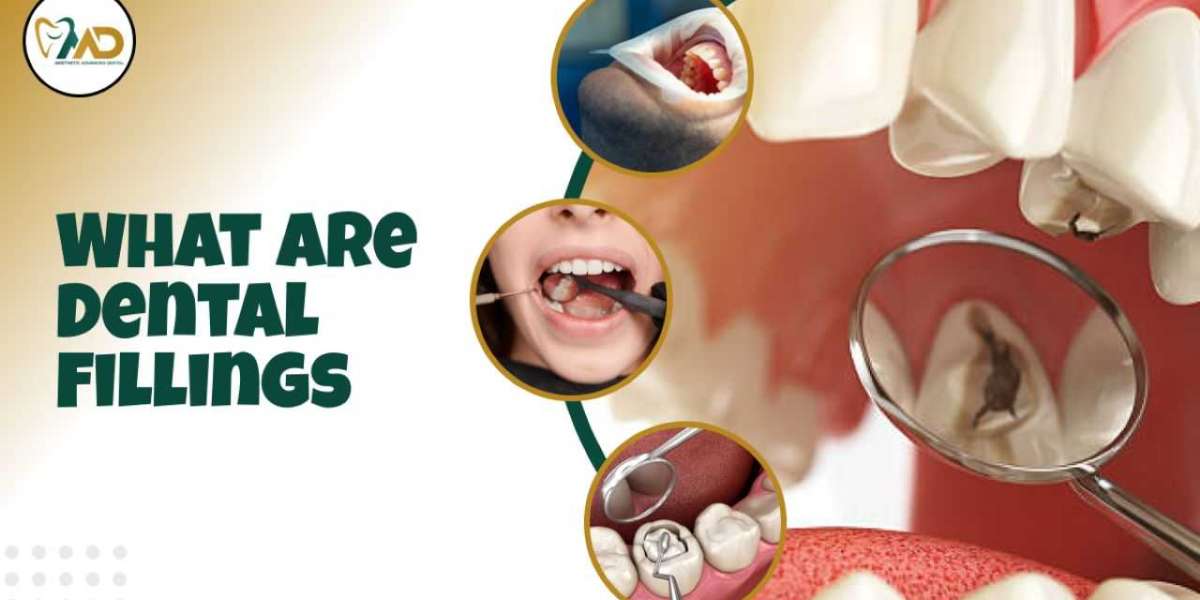A healthy smile plays a vital role in overall wellness, and dental fillings offer a reliable solution for repairing damaged teeth and preventing cavities from progressing. Whether you're addressing a cavity or a chipped tooth, understanding the treatment process and its benefits can help alleviate concerns and give you the confidence to take control of your oral health.
What Are Dental Fillings?
Dental fillings are specially designed materials used to restore teeth affected by cavities, cracks, or minor fractures. By filling the damaged area, they help protect the tooth’s structure and function while preventing further decay. This quick and effective treatment is suitable for people of all ages and ensures long-term oral health.
Types of Dental Fillings
There are several types of dental fillings, each suited for different needs. Here’s a breakdown of the most common options:
- Amalgam Fillings
Often called silver fillings, these are made from a mixture of metals like mercury, silver, tin, and copper. They are durable and cost-effective, making them an excellent choice for back teeth that endure heavy chewing. - Composite Fillings
Made from tooth-colored materials, composite fillings are perfect for visible areas like front teeth. They blend seamlessly with your natural smile, offering both functionality and aesthetics. - Ceramic Fillings
Crafted from porcelain, ceramic fillings are highly durable and stain-resistant. While they look natural, they tend to be pricier than other types. - Gold Fillings
Known for their strength and longevity, gold fillings are a premium option. They offer a unique appearance and withstand wear and tear exceptionally well. - Glass Ionomer Fillings
These fillings are often used for children or areas with minimal chewing pressure. They slowly release fluoride, which helps prevent additional cavities.
Benefits of Dental Fillings
Opting for dental fillings offers more than just restoring your teeth. Here are the key benefits:
- Stops Further Decay: By sealing off damaged areas, fillings protect your tooth from harmful bacteria.
- Restores Functionality: Fillings allow you to chew and bite comfortably again.
- Improves Appearance: Tooth-colored fillings enhance your smile by blending naturally with your teeth.
- Promotes Long-Term Oral Health: Addressing cavities early with fillings prevents the need for more extensive and costly treatments later.
What to Expect During the Procedure
Getting dental fillings is a straightforward and stress-free process. Here’s what typically happens:
- Assessment: Your dentist will examine your teeth and may take X-rays to determine the extent of the damage.
- Numbing the Area: A local anesthetic is applied to ensure your comfort.
- Removing Decay: The dentist removes the decayed portion of the tooth using specialized tools.
- Preparing the Tooth: After cleaning, the tooth is prepped for the filling.
- Filling Placement: The filling material is applied in layers, shaped, and polished for a natural finish.
- Final Adjustments: Your dentist ensures the filling aligns with your bite and makes any necessary tweaks.
Aftercare Tips for Dental Fillings
To keep your dental fillings in excellent condition, follow these simple aftercare tips:
- Brush twice daily with fluoride toothpaste.
- Floss daily to remove food particles and plaque.
- Avoid biting on hard objects like ice or pens.
- Visit your dentist regularly for check-ups and cleanings.
Conclusion
Dental fillings are a simple way to fix damaged teeth and prevent further problems while keeping your smile healthy. Whether you choose metal, white, or ceramic fillings, selecting the right option ensures long-term dental health. If you’re searching for professional care, the Best Dental Clinic in Koramangala can guide you in maintaining your oral health and making informed choices. Taking care of your teeth now can help you avoid bigger issues later and keep your smile strong and healthy.














